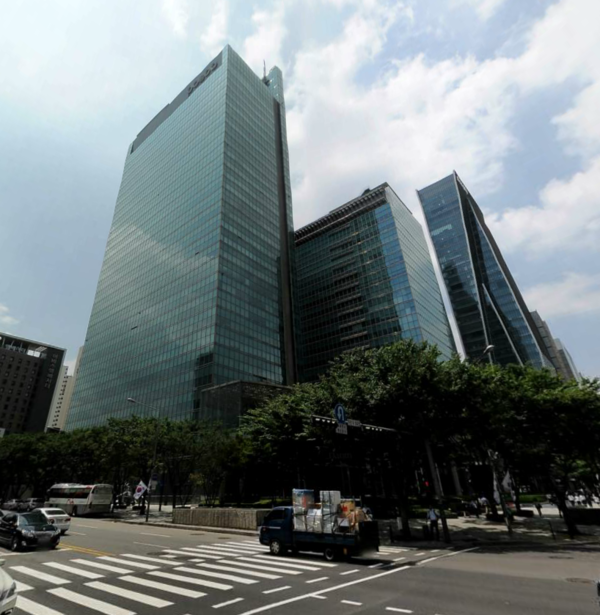-SK Telecom (Chairman Choi Jung-woo) succeeded in defending its profitability by expanding domestic sales
POSCO Defends Profitability by Improving 'Expanding Domestic Sales and Global Infrastructure' Performance in the First Quarter
SK Telecom (Chairman Choi Jung-woo) succeeded in defending its profitability by expanding domestic sales and improving its global infrastructure performance in the first quarter. In addition, it recorded the highest liquidity ratio among local companies in January due to improved liquidity through preemptive financing.

In a corporate briefing held in a conference call on Monday, POSCO said its sales and operating profit reached 6.9699 trillion won and 458.1 billion won on a separate basis in the first quarter. Net profit is 453 billion won. It achieved 14.545 trillion won in consolidated sales, 705.3 billion won in operating profit and 434.7 billion won in net profit, the data showed.
Despite the global spread of the Corona 19 crisis, POSCO has implemented a flexible sales strategy by expanding the proportion of domestic sales in the steel sector. In the global infrastructure sector, the consolidated operating profit rose 26.5 percent on-quarter to 4.8 percent due to robust performance of POSCO International's Myanmar gas field, improved profits from POSCO E&C's PJT building business, and POSCO Energy's falling fuel costs.
Compared to the previous quarter, the production of crude steel and products decreased by 540,000 tons and 240,000 tons, respectively, due to the repair of rolled lines such as the number of three furnaces in Gwangyang, hot-rolled and back plates. In the first quarter, crude steel production is 9,066 tons and product production is 8,723 tons. However, operating profit has increased 24.8 percent since the fourth quarter of last year due to falling raw material prices. Its operating profit ratio rose 1.6 percentage points to 6.6 percent. In terms of product sales, the company posted 8,620 tons in the first quarter, while its domestic sales accounted for 54.8 percent, up 1.7 percent from the previous quarter.
Before the full-fledged spread of Corona 19, POSCO raised liquidity by preemptively raising 3.3 trillion won worth of repayment funds by January this year. Its liquidity ratio, which is used as an indicator of corporate stability, stood at 497.1 percent as of the first quarter of last year, a sharp improvement from 422.7 percent in the first quarter of last year, marking the highest level among South Korean The presentation of funds included in current assets on a separate basis is 11.7 trillion won, up about 4 trillion won from the first quarter of last year.
In addition, the 1 trillion won worth of treasury stock purchase money trust announced on the 10th was decided to improve the undervalued stock price due to Corona 19 as part of its active shareholder return policy, and the company plans not to change the dividend policy or borrow additional money in the mid-term with a 30 percent dividend propensity as it utilizes surplus stock.
In particular, POSCO has continued to make efforts, with executives starting to buy shares of the company as its stock price has weakened due to worsening internal and external conditions.
Last month, 51 executives, including POSCO Chairman Choi Jung-woo, purchased a total of 2.6 billion won worth of shares (16,000 shares), while 89 executives from five listed companies, including POSCO International, POSCO Chemical, POSCO ICT, POSCO Steel Plate and POSCO MTec, also purchased a total of 2.1 billion won worth of shares in their respective companies.
POSCO executives' purchase of company shares is expected to boost market confidence in the company by sending signals to the market that the company's shares are being excessively undervalued amid unstable stock markets worldwide, while showing confidence in the recovery of the company's stock prices and willingness to manage responsibilities.
POSCO forecast that the global spread of the Corona 19 will lead to a difficult situation in which demand industries such as automobiles and construction will reduce demand for steel and lower product prices. The company plans to do its best to improve its management performance by implementing high-intensity measures such as flexible production and sales activities in accordance with changes in the business environment, extreme reduction of indirect costs that are less related to production, and adjustment of investment priorities.

